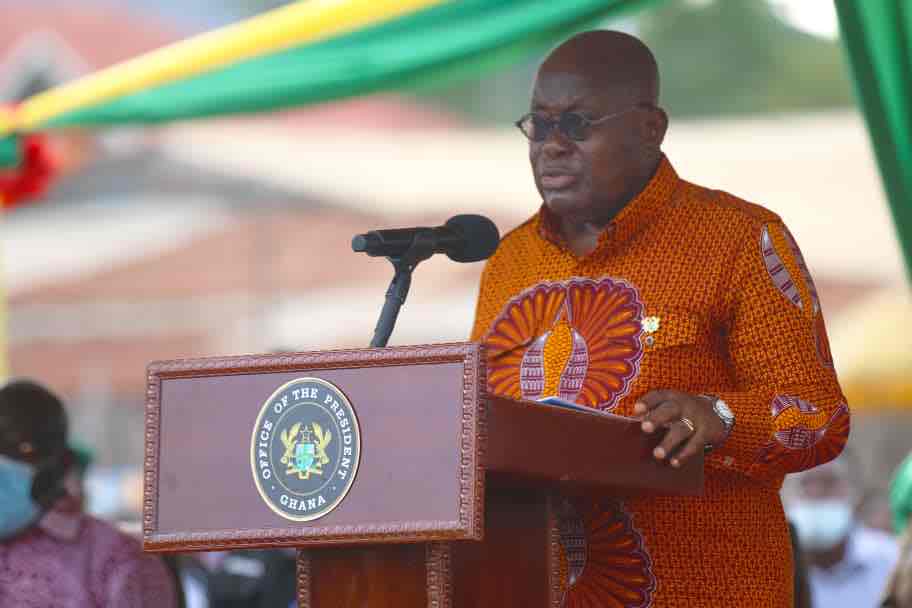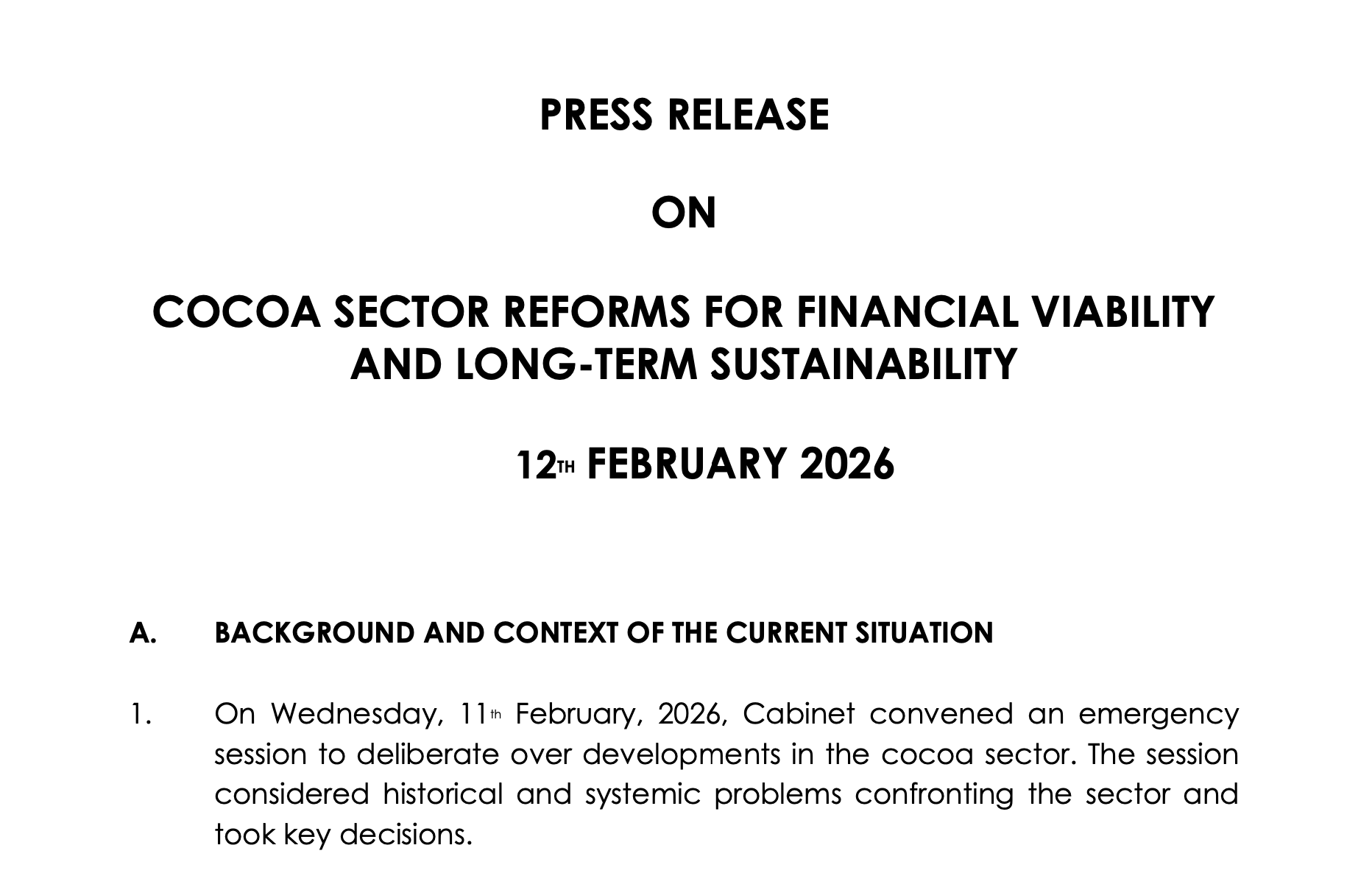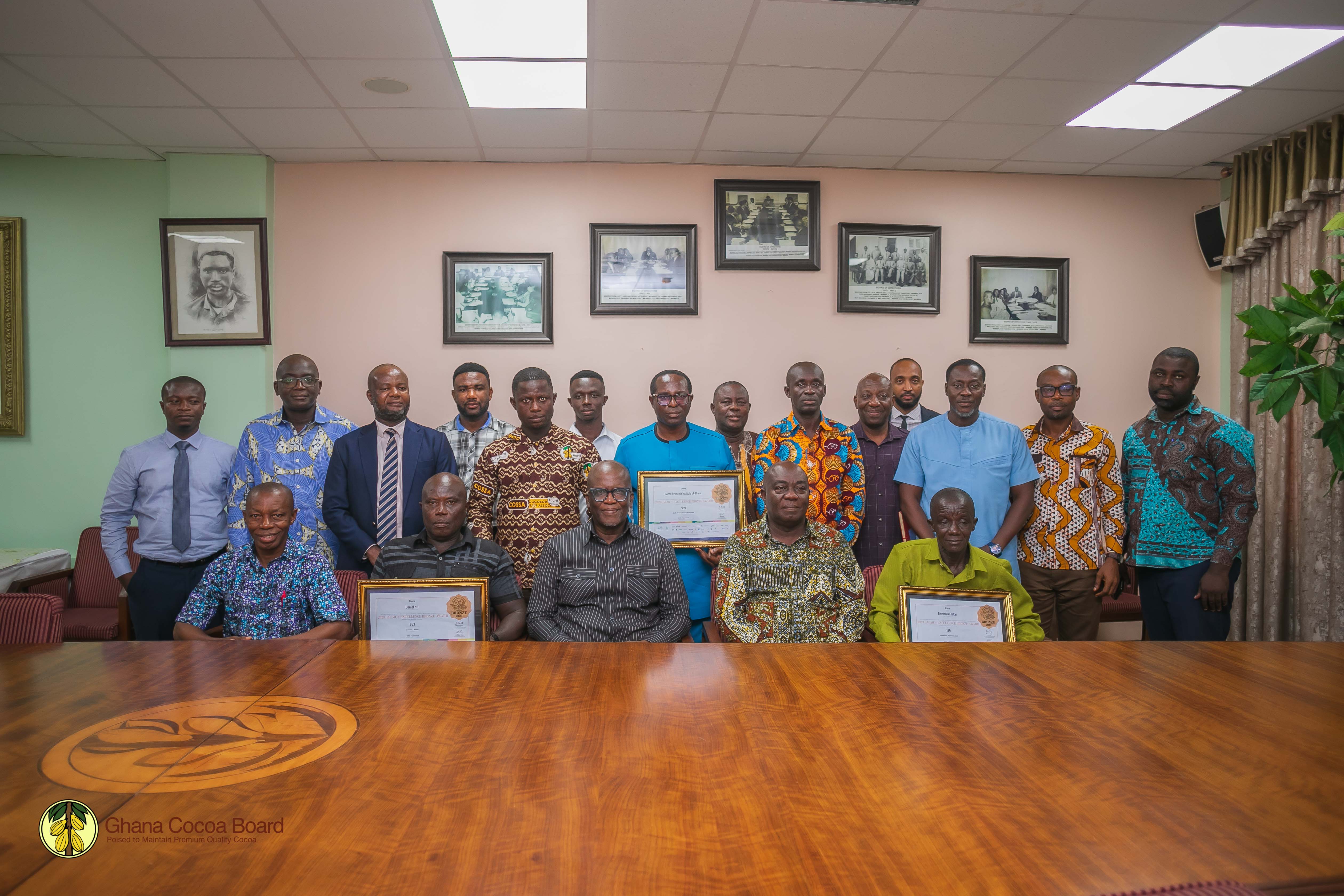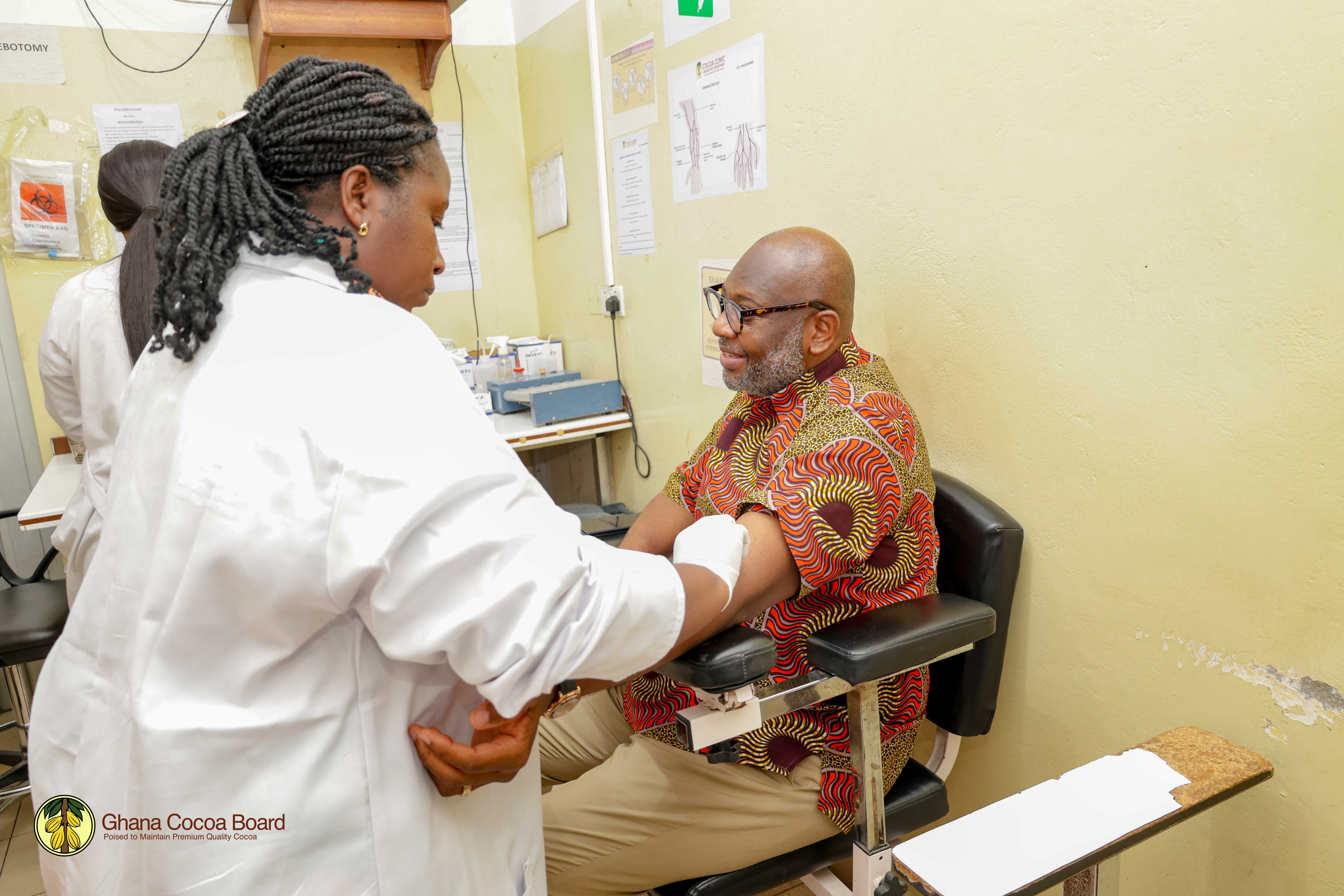PRESIDENT AKUFO ADDO LAUNCHES NATIONAL COCOA REHABILITATION PROGRAMME.

Date: 26th September 2020
The President, Nana Addo Dankwa Akufo- Addo has launched the National Cocoa Rehabilitation Programme which is aimed at rehabilitating farms which have been affected by the Cocoa Swollen Shoot Virus Disease (CSSVD) and rendered unproductive.
The programme, which has already been successfully piloted in some of the worst CSSVD affected cocoa-growing areas is now being expended to all the cocoa-growing regions in the next phase of the programme. The government has allocated over USD200 million of the $600 million syndicated loan facility it secured from the African Development Bank (AfDB) to the national rehabilitation programme.
The launch took place at a durbar at Sefwi Wiawso in the Western North Region on Thursday, 24th September. Present at the launch was Nana Kwasi Katakyie Bumakama II, paramount chief of the Sefwi Wiawso traditional area, and subchiefs of the area.
Under the National Cocoa Rehabilitation Programme, COCOBOD bears the full cost of the two-year-long rehabilitation process which involves the cutting of the diseased trees, treating the farms and replanting with disease-tolerant, early bearing, high yielding cocoa varieties. COCOBOD also gives an amount of GH₵1000.00 per hector to each farmer who has been affected by the disease. In the case of tenancy, both affected tenant farmers and their landowners are compensated.
In the next phase of the rehabilitation programme, some 20,000 hectors of diseased cocoa farms will be rehabilitated by the middle of next year.
President Akufo-Addo bemoaned the devastation that CSSVD has already caused in the cocoa sector, reducing the country’s production capacity and “grievously ruining the lives of many farmer households”.
“Because of the neglect of the recent past, the disease has spread to cover every COCOBOD delineated cocoa region in the country; Western North, Western South, Central, Eastern, Ashanti, Brong Ahafo and Volta, he stated.
“About two-thirds of the blighted cocoa area in Ghana, representing some 214000 hectors were found in the Western North Region alone. The region which once produced over 330000 tonnes in 2010/2011 is now producing below 150000 tonnes today.”
He said, his government has characterised the spread of CSSVD as a national disaster, hence, the aggressive and comprehensive effort to curtail its spread and return each farm rendered unproductive by the disease to a productive state once more, and in so doing, restore the livelihoods of farmers.
The planting of early bearing, high yielding cocoa varieties during the rehabilitation process ensures that farmers will be able to harvest their beans for sale in a fraction of the time it typically takes the old cocoa trees. The rehabilitation programme will also greatly increase the national production capacity to meet the 1 million metric tonne production target.
More than 5000 jobs have already been created for the youth to provide labour and technical support in CSSVD affected cocoa communities in the pilot phase of the rehabilitation programme. Some, 50000 jobs will be created in the expended phase of the programme.
The President asked cocoa farmers to fully cooperate with the government to ensure that all disease farms are rehabilitated. He assured the farmers that each will be duly compensated for their loss of livelihood.
Other News / Articles you might be interested in.

PRESS RELEASE ON COCOA SECTOR REFORMS FOR FINANCIAL VIABILITY AND LONG-TERM SUSTAINABILITY
A. BACKGROUND AND CONTEXT OF THE CURRENT SITUATION 1. On Wednesday, 11th February, 2026, ...
Read More
COCOBOD HONOURS GHANAIAN COCOA FARMERS FOR EXCELLENCE AT INTERNATIONAL COCOA AWARDS
Management of Ghana Cocoa Board (COCOBOD) has honoured the winners of the 2023 International ...
Read More
DR. RANSFORD ABBEY LEADS BY EXAMPLE, UNDERTAKES ANNUAL MEDICAL EXAMINATION AT COCOA CLINIC
The Chief Executive of the Ghana Cocoa Board (COCOBOD), Dr. Ransford Abbey, has ...
Read More